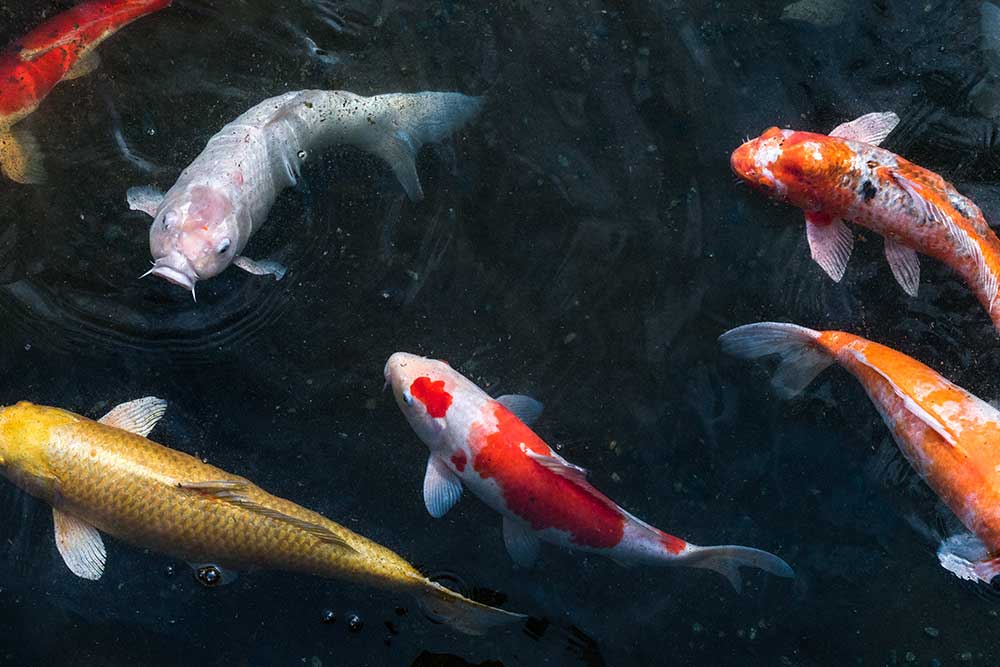Before you purchase any koi fish, as with any pet, you would usually want to plan whether you are in a position to care for it for at least its lifetime. That means if you’re living in a rental house and likely to move in two years, you probably don’t want to start building a pond in the backyard and raising young koi. There is a certain level of commitment to caring for koi, and there is a difference in this commitment depending on the type of koi you get. So how long do koi fish live? We will look at the two most common types of koi owned by casual koi enthusiasts – domestic koi, and Japanese koi.
For domestic koi, or the regular koi that most people may have, the average lifespan is around 15 years of age. These koi do not grow very large, usually about a foot long, and are easy to keep and care for. They are certainly less of a commitment than Japanese koi. Japanese koi tend to live much longer in comparison – their average lifespan is 40 years! We’ll take a look at the factors that contribute to this stark difference in how long these fish live.
Genetics
Genetically, Japanese koi are a superior breed to domestic koi. They grow larger and have a longer life expectancy as compared to their smaller cousins. In particular, breeders in Japan take great care to raise their koi in such a way as to greatly enhance their gene pool. The highest quality of koi would always remain in Japan, and any exported koi would be of lesser genetic quality. Western breeders who have attempted to match the size of Japanese koi by making them grow faster may have also caused the lifespan of these domestic koi to shorten over time.
Feeding
One of the main reasons why domestic koi have shorter lifespans is due to the over-rich diet that many western breeders tend to feed their koi in order to make them grow faster. The overfeeding of koi can lead to obesity and be the cause for unhealthy koi which do not last long. In comparison, Japanese breeders encourage natural growth in their koi size by relocating them to large earth dams in the summer period, where they have more room to grow and can forage on natural foods in the water.
Water Temperatures
Winter in Japan is extremely cold, and koi tend to go in hibernation for long periods of time, often longer than in western countries. By being in hibernation, koi naturally tend to lengthen their lifespans. Fun fact: Long hibernation periods are part of the reason why Hanoko, the world’s oldest koi fish, was able to live to a shocking 226 years of age! In comparison, breeders outside of Japan may tend to warm their pool temperatures during the winter so that the koi can keep growing and not enter hibernation mode.
So remember, if you wish to extend the lifespan of your koi, avoid overfeeding it and allow it to enter hibernation during the wintertime! For pond health, filtration systems and other koi care needs, you may find more koi care products on Everything Koi.


 Blog
Blog



